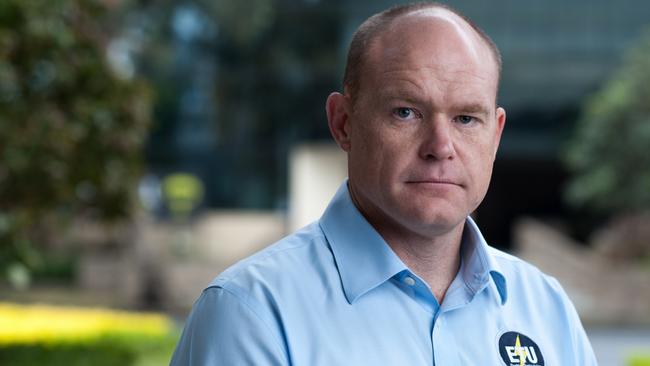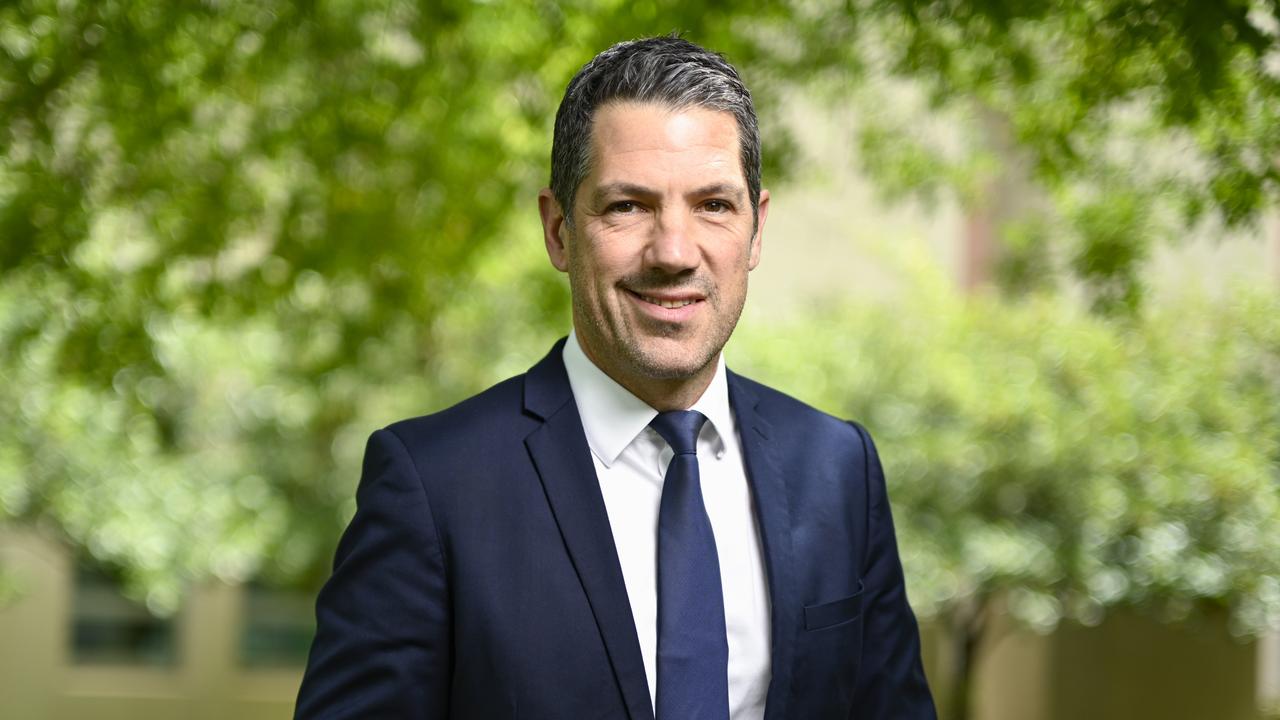Labor ‘betrays workers’ in agreeing trio of free trade deals: unions
Backing Indonesian free trade deal will push working class voters “into Hanson’s arms”, says union chief.

Federal Labor’s decision to side with the Coalition and back the Indonesian free trade agreement was a “deep betrayal” that would push more working class voters “into the arms of Pauline Hanson”, a national union leader says.
Electrical Trades Union national secretary Allen Hicks on Friday joined CFMEU leader Michael O’Connor and ACTU president Michele O’Neil in publicly criticising Labor’s support for the free trade agreement.
The union intends to move a motion at this weekend’s Northern Territory ALP conference calling on Labor MPs to support the party platform to strengthen protection of sovereignty, jobs, wages and conditions in free trade agreements or “face expulsion from the party”.
ETU Territory organiser Dave “Strawbs” Hayes said the motion will be put to “force” ALP MP’s to reflect on the core values of the party they profess to represent.,
“We are appalled at the Federal ALP’s betrayal of working Australian’s, all we as rank and file members of the party are asking them to do is uphold the party platform or find another party.” he said
Anthony Albanese has written an email to 300,000 ALP supporters defending the decision, saying the agreements with Indonesia, Hong Kong and Perus were not the deals “we would have done if we were in government” but it was important “to do whatever we can to create and protect Australian jobs.”
“That’s why we’re fighting to make sure that when the government brings these deals in, they’re good for the Australian economy and they’re good for Australian workers,” Mr Albanese wrote.
Australian Chamber of Commerce and Industry chief executive James Pearson said that Labor had made a “sensible, bipartisan decision to back the Indonesian, Hong Kong and Peru Free Trade Agreements.”
“The opposition’s support will ensure greater market access for Australian exporters who are facing tough conditions. The unions’ claim that Labor has ‘betrayed workers’ is ridiculous,” he said.
“When the Australian employment market doesn’t have the workers available, employers need to be able to get the temporary workers they need to keep their businesses going, or else Australian jobs are put at risk.
“The unions are running a scare campaign. These agreements will not mean less jobs for Australians.”
Mr Pearson said the government should not wait until events in Hong Kong were resolved because there was a “high chance” that Australia could lose the agreement.
But Mr Hicks said the ALP decision would lead to an “explosion in dodgy electrical contract work and wage theft” as the agreement proposed 6000 temporary labour visas, without adequate labour market testing, a direct breach of Labor’s policy platform.
“There is no process for testing the licensing and training of electrical workers entering Australia under this type of agreement,” Mr Hicks said.
“In Indonesia, wiring isn’t bound by Australia’s multiple earthed neutral system. Working in a new country as an electrician isn’t as simple as plugging in a power adaptor.
“Temporary labour visas are a license for wage theft. The temporary worker has no capacity to enforce their rights because if they complain they face the threat of deportation. Labor’s decision to endorse this deal is a deep and fundamental betrayal.
“If Labor wants to push more working class voters into the arms of Pauline Hanson it’s going about it the right way.”
MORE: Labor to back deal with Indonesia | Labor under pressure to block trade deals
In his email, Mr Albanese said that benefits would flow from the Indonesian deal noting that, in return for 2 per cent of Indonesian exports receiving tariff free access to Australia, 25 per cent of Australian exports to Indonesia would face no tariffs.
He also said the agreement would allow the Australian steel industry to sell hundreds of millions of dollars into the Indonesian market.
While Labor was supporting the enabling legislation for the trade deals, Mr Albanese said he was demanding the Morrison government guarantee that Australian jobs were protected and that new measures were introduced to ensure working holiday-makers were not exploited.
Mr Albanese also provided an assurance that he was insisting on a “review of the Investor-State-Dispute-Settlement (ISDS) mechanism” in the mandated five year review of the agreement.
In addition, he would ensure “there is no inference from the agreements that would require the privatisation of government services nor restrict any future decision to acquire public assets.”
“We will continue to hold the Morrison government to account and fight for what’s right for the economy and Australian jobs,” he said.
Mr Hicks said the Indonesia free trade deal was “only the tip of the iceberg”.
If the looming Regional Comprehensive Economic Partnership is approved, it will create a 16 nation free trade zone involving Brunei, Cambodia, Indonesia, Laos, Malaysia, Myanmar, the Philippines, Singapore, Thailand, Vietnam, China, Japan, India, South Korea, Australia and New Zealand.
“Labor needs to come to its senses. These trade deals create the preconditions for migrant exploitation. It’s about time Labor stood up for better working conditions and the right to collectively bargain.”
Mr O’Connor said on Thursday that Labor’s decision would cause ongoing “conflict” between the ALP and the union movement, and the “parliamentary party will have to wear the fallout”.
After Ms O’Neil accused Labor of abandoning its own party platform by allowing through the Indonesian, Hong Kong and Peru agreements, Mr O’Connor said the Labor caucus decision sent a “very bad signal” to unions and workers and guaranteed rank-and-file opposition at upcoming ALP state and territory conferences and the next national conference.
There are 1000 Indonesians in Australia on working holiday visas but under the FTA that number is expected to increase to about 4000 workers in the first year and 5000 after the 6th year.
There were also concerns about the investor-state dispute settlement provisions that allow foreign investors in some circumstances to sue the federal government in international tribunals if they consider new Australian laws harm their interests.
Senior Labor sources said if the party voted against the deals the ISDS provisions would be much worse under the existing bilateral investment treaty between Australia and Indonesia that was signed in 1992.
Labor’s national platform, adopted late last year, says the party in government would work to abolish ISDS provisions.





To join the conversation, please log in. Don't have an account? Register
Join the conversation, you are commenting as Logout